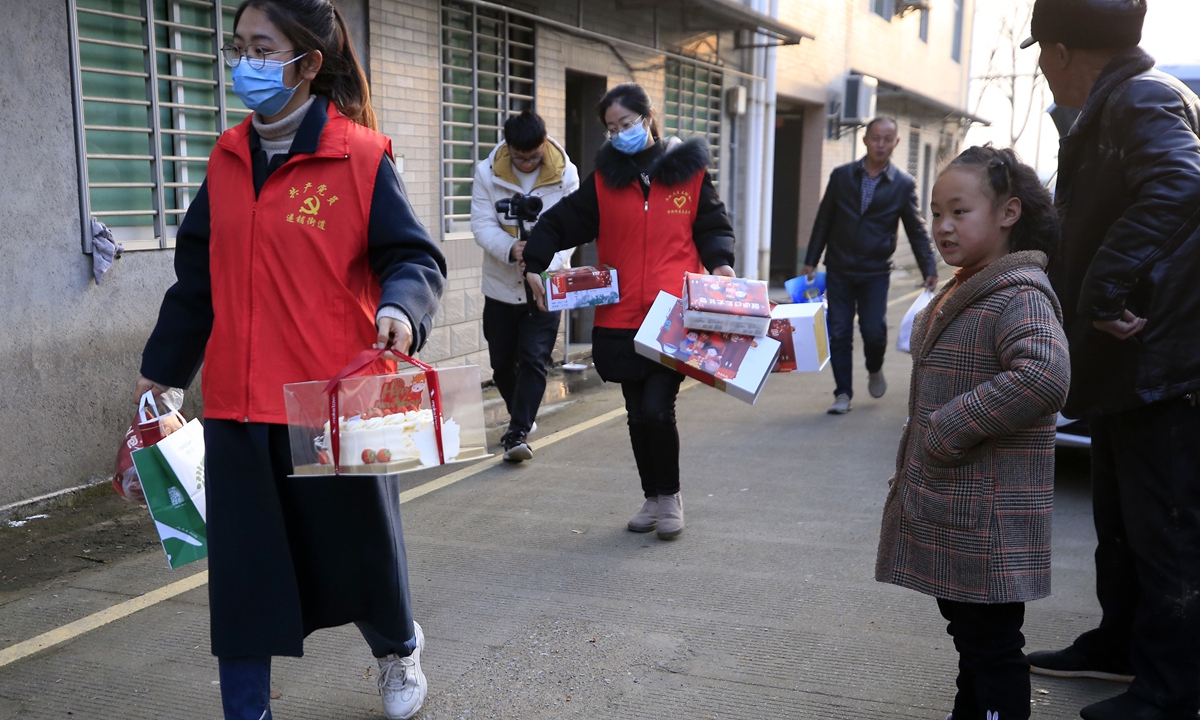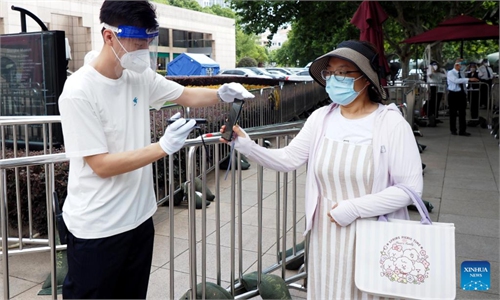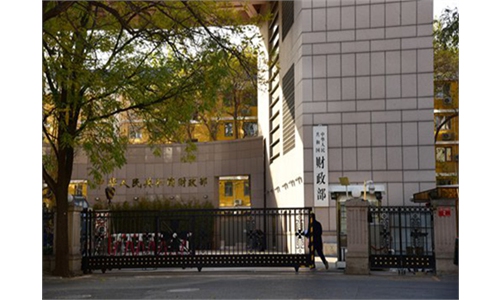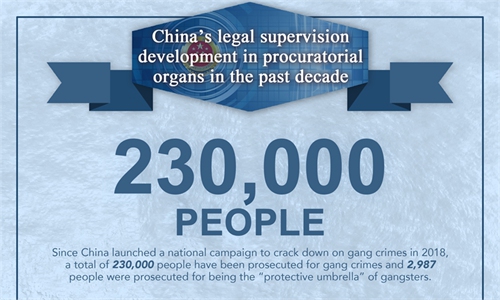'Snail awards' given to sluggish civil servants as China ramps up efforts to rectify indolent govt performances

A civil servant delivers gift packages for workers who chose to stay at the city where they work during the Spring Festival holidays in Anji, East China's Zhejiang Province on February 2. Yang Hui/GT
In the latest efforts to ramp up the rectification of the indolent and sloppy performance of duties by government officials, a number of local authorities in China have rolled out a humorous way of giving "snail awards" and "lying-flat-er" titles to sluggish civil servants, warning those with such problems to correct their behavior at work and better serve the needs of the people.Experts said on Tuesday that the moves reflected local governments' resolve to improve work efficiency, while noting that a long-term incentive mechanism and effective supervision should be in place.
In Binhai county, East China's Jiangsu Province, the first batch of seven "lying-flat-ers" were spoken to on July 26, China News Service reported on Tuesday.
According to Wang Dawei, a senior local official, the awards were all voted on anonymously by local residents and colleagues, and those with a vote share of more than 30 percent were thus labeled as "lying-flat-ers," with the highest rate reaching nearly half of the total.
The criteria for "lying flat" refer to those who act slowly, ineffectively and irresponsibly. For example, the "lying-flat-ers" were seen always absent from the office and greedy for pleasure and coziness, while not working hard.
Central China's Hunan Province also rolled out a public image assessment activity for civil servants in Hanshou county, ifeng.com reported on Tuesday. Based on their performances at work, local officials were categorized into four types - practical, gossipy, mischievous and lying flat.
As of June, a total of 345 officials had been voted as being "practical," while another 15 were listed as "gossipy," six as "mischievous," and 62 as "lying flat." The latter three types were given reminder letters for rectification by local authorities.
Similar lists of negative examples such as the "snail awards" have been seen in Central China's Henan Province and Southwest China's Guizhou Province, where in addition to facing public criticism, relevant personnel will have points deducted from their annual performance assessments.
In these regions, hotlines and special channels have been opened to receive complaints and supervision from the public.
The selection of "lying flat" officials is for a good cause, reflecting local governments' resolve to improve work efficiency, Zhu Lijia, professor of National Academy of Governance, told the Global Times on Tuesday, noting that such negative lists should be temporary measures while a positive incentive mechanism should be the long-term plan.
Zhu said a comprehensive, scientific and effective evaluation and supervision mechanism should be built, which includes the performance of job duties, as well as evaluations by the public and colleagues, taking into account not a single criterion but an overall assessment of the person.
The expert added that dereliction of duty has been a long-existing problem among some local officials for complicated reasons, including flaws in the mechanisms of promotion, discipline and incentives. "China has been working hard these years to correct these flaws. For example, for officials who were unwilling to shoulder responsibility because they were afraid of being punished, the central government has rolled out mistake correction and fault tolerance mechanisms," Zhu said.
While these measures have been hailed by Chinese netizens as effective in ruling out lazy workers in the organs of authority that shows the strong determination of the government to rectify these deep-seated problems, some questioned whether the criteria for such labels are suitable and specific, worrying that they may mistakenly "harm" innocent workers, or that the implementation of the mechanism would be difficult to pursue in the future.
Ma Qingyu, vice director of the Department of Sociology and Culture at the National Academy of Governance, told the Global Times on Tuesday that the term "lying flat" should not simply mean "inaction."
To explain, Ma gave an example of local officials who adopted a one-size-fits-all approach and evaded their responsibility in precise and differentiated epidemic control strategies for COVID-19 prevention, saying the implementation of such rigid measure should also be regarded as "lying flat".
Ma called for an incentive mechanism that will encourage local officials to perform their duties flexibly on the basis of the actual situation.
Multiple places in China have rolled out incentives in recent days to award those who are outstanding and devoted to serving the people.
Nanyang city in Henan issued a guidebook for the self-referral mechanism of government officials in June, with the aim of "providing a broader stage for excellent civil servants with strong will and competence," China News Service reported.
Huzhou of East China's Zhejiang Province vowed to break the stereotypes surrounding the promotion of civil servants, prioritizing the outstanding ones regardless of age, seniority, education or ranking, according to media reports.



